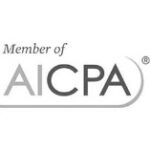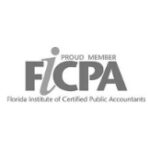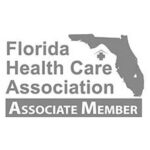Entering the Florida healthcare marketplace as a care service provider is no easy task. With a competitive field and many specific financial and regulatory rules at play, navigating the complex application process required for licensing involves a series of specific steps, accurate financial projections, and accompanying documentation. Obtaining trustworthy, specialized accounting services is a must for care providers to correctly assess their financial health and to prepare for the rigorous (and ongoing) review of their financial and operational status. Supporting care providers in securing licensure to operate within the state, accounting firms can help them achieve a sustainable presence in the competitive Florida marketplace.
The Florida Agency for Health Care Administration (AHCA)
Established by the Florida Legislature in 1992, the Florida Agency for Health Care Administration (or AHCA) is the state agency entrusted with oversight and administration of Florida’s enormous Medicaid program. The agency is tasked with the responsibility of the state’s approximate $35 billion Medicaid budget, which serves close to 5 million Floridians and provides the necessary licensing and ongoing review of an estimated 50,000 healthcare entities operating within the state.
The AHCA has tremendous duties and authority. Its mission is to better the health of Floridians by ensuring access to quality healthcare services and promoting efficient and effective care delivery within the state. Understanding the AHCA and its requirements and oversight authority is essential for healthcare providers interested in working in this sizeable market.
The agency’s key functions are broad and include:
- Administration of the Medicaid Program: Providing services to low-income individuals and families, the program is a lifeline for many of the state’s citizens in terms of access to quality medical care.
- Regulation of Florida Healthcare Facilities: In addition to offering required licensing, the AHCA inspects a range of healthcare entities, including assisted living facilities, home healthcare agencies, hospitals, and nursing homes. The agency has the authority to ensure providers meet all necessary state and federal care standards.
- Collection and Analysis of Data: A source for ongoing data aggregation and interpretation, the AHCA is an important trove of healthcare information that then offers key decision and policymakers relevant data with the goal of ensuring healthcare delivery satisfaction.
Assisting Healthcare Consumers: The AHCA provides resources and assistance to consumers, helping them navigate the healthcare system, such as finding information on a vast number of healthcare providers and helping them understand their responsibilities and rights and consumers. The agency furnishes them with transparent information so they can make quality decisions for better healthcare outcomes for themselves and their families.

Care Facilities Covered by AHCA
There are many types of healthcare facilities that require AHCA licensing and oversight. Major ones include hospitals, which encompass general, specialty, and psychiatric facilities; nursing homes, which provide essential long-term and rehabilitation care; assisted living facilities that cater to elderly or disabled individuals who require daily assistance with their basic living needs; home health agencies that offer a range of medical and non-medical services to clients in their homes; healthcare clinics that deliver a wide array of medical services; and laboratory facilities which are crucial for performing diagnostic tests on clinical samples as well as providing imaging services.
AHCA’s Licensing Power
For care providers, the AHCA license is a necessary certification to operate within the state of Florida and is an ongoing requirement to offer health and well-being services while ensuring state and federal rules are met.
In addition to retaining the AHCA license, care providers are subjected to regular inspections, ongoing regulatory compliance, and adherence to specific standards of care. Facilities must renew their licenses periodically and may be subject to additional reviews or inspections to ensure continuous compliance.
Proof of Financial Ability: Components of Mandatory Disclosure
Proving that a healthcare entity has the financial ability to maintain ongoing operations is a basic and crucial part of the AHCA licensing process. Providers must sustain their operations, pay staff, and keep equipment in working order. Again, as the AHCA’s mission is to increase better healthcare outcomes for the state’s citizens, this financial ability review aims to prevent instability, which may lead to compromised patient care and, in worst-case scenarios, a facility’s closure.
Accounting firms that offer specialized services (such as Walters & Associates) work with healthcare providers, guiding them through the process of crafting financial projections to demonstrate their proof of financial ability. This includes the submission of specific documentation during the licensure application. Precise financial projections are crucial for compliance and can help care providers understand their current and estimated future financial status, even becoming an aid for their own operational planning and success.
As the AHCA considers a provider’s initial application as if it were a new business (regardless of the longevity of the firm), financial projections must be reasonable and meet generally approved accounting principles (or GAAP). Sources and proof of funding must be accurate, and the application documentation thoroughly reviewed. Again, this is a safer, more efficient process when done with the assistance of a specialized accounting service provider.
Delving deeper, information required by regulators will include but potentially not limited to:
- Financial Statements: Detailed reports such as balance sheets and income statements need to be up-to-date and honestly reflect the stability of the care provider facility.
- Budget of Operations: Projecting an operating budget with expected revenues and expenses is a central component and can be complicated for a care provider. The AHCA process will assess how financially sound an applicant’s operations are.
Source of Funds: Examining how funds are obtained (including loans, investments, and other financial support) provides additional information on the facility’s operations and long-term stability.

Required Forms in the AHCA Process
Healthcare providers who want to apply for licensure in the state of Florida must use specific forms to submit proof of financial ability. These provide applicants with a standardized format to present financial data and to make certain all necessary information is included. As part of the process, state regulation demands that a certified public accountant examine and compile data for the care provider, and to include financial summaries and discuss the assumptions and accounting procedures that have been used in the representations provided.
Licensure, by the way, is for new care providers as well as those who have had a change of ownership. While several forms are involved in the application process, such as the Attestation of Compliance with Background Screening for provider personnel, one, in particular, is crucial in regard to the financial and accounting components of the application: the Proof of Financial Ability to Operate, or AHCA Form 3100-0009.
Used to detail financial projections and budgeting for a facility, this form includes sections on estimated revenues, operating expenses, and capital expenditures. This is a two-year estimate financial document that the state will use to judge if the provider does indeed have financial viability, adequate staffing as dictated by law, costs of contracted (or outsourced) services such as delivery and maintenance positions, or other roles such as speech and occupational therapists. In addition, full documentation to illustrate the above is necessary, as well as information on funding options and/or alternatives in case of revenue shortfalls.
The Submission Process
Applicants seeking licensure in Florida must fully and accurately complete all relevant AHCA forms and make sure all specific financial details are provided. As mentioned previously, along with these forms, applications must come with supporting documentation such as budget plans, current financial statements and projections, and evidence of funding sources. The completed package is submitted to the AHCA via their online portal for agency review to determine if the care provider has met the requirements and has shown the financial ability to operate. (Note: Change of Ownership applications cannot be submitted online electronically but via mail.)
AHCA’s Impact and the Role of Quality Accounting Services
The impact of the implementation of AHCA regulations and procedures has been profound on Florida’s healthcare marketplace. These oversight functions have helped to improve and maintain standards of excellence in healthcare facilities across the state. Again, by administering the Medicaid program (which ranks in the top-10 largest in the nation) and by implementing managed care, AHCA wields great influence as it strives for the goals of improved access to healthcare for low-income individuals and cost control management. Better quality initiatives and data transparency have, indeed, increased patient safety and allowed for more informed consumer decision-making.
For Walters & Associates, CPAs, the firm has a history of partnering with a variety of healthcare providers, benefiting them in multiple ways. These providers include adult daycare centers, assisted living and skilled nursing facilities, hospice care centers, home health agencies, and more. Importantly, by working with clients and offering expertise when developing detailed financial projections, the firm has assisted hundreds in obtaining licensure and the necessary state approvals for operation in the Florida marketplace. With a team of experts, clients are assured their data is accurate and timely, with a transparent, flat-fee pricing structure and no hidden costs.












